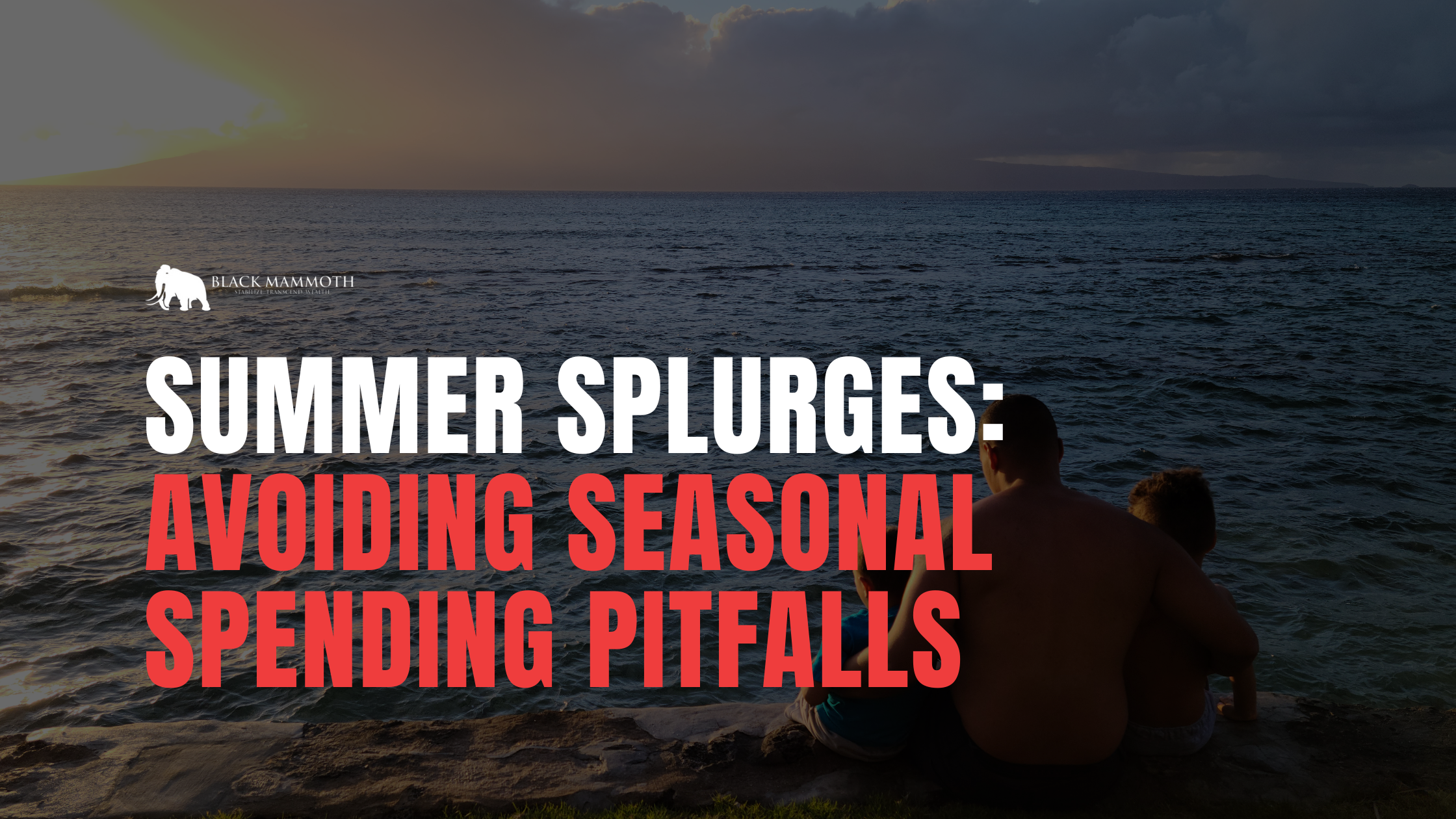Summer Splurges: Avoiding Seasonal Spending Pitfalls
The Summer Spending Trap: Why It’s So Easy to Overspend
Summer has a way of loosening our purse strings. The allure of vacations, outdoor activities, and social events can lead to unexpected expenses. According to a recent Finder survey, Australians waste an average of $154 monthly, with overspending on shopping, late bill payments, and frequenting bars and clubs being top culprits . While this data is from Australia, similar patterns are observed globally. dailytelegraph
Common Summer Spending Pitfalls
1. Vacation Overspending
Planning a getaway? Without a detailed budget, it's easy to overspend. From accommodation to dining, costs can add up quickly. A detailed budget is the cornerstone of debt-free travel, ensuring that your journey is as stress-free as the destinations you visit . WikipediaCal West Law+1Stoddard Financial+1
2. Impulse Purchases and 'Spaving'
Sales and promotions are rampant during summer. The concept of "spaving"—spending money to access savings—can lead to unnecessary purchases .Credit & DebtWikipedia
3. Lifestyle Creep
As income increases, so do expenses. This phenomenon, known as lifestyle creep, can erode savings. It's essential to be mindful of this and adjust spending habits accordingly .Wikipedia+1Glamour+1
4. Dining Out Frequently
Summer is synonymous with social gatherings, often leading to increased dining out. While enjoyable, this can strain your budget if not monitored. Glamour
5. Neglecting Utility Costs
Running air conditioners and other cooling systems can spike electricity bills. Being energy-conscious can help mitigate these costs.
Strategies to Maintain Financial Discipline
1. Set a Realistic Summer Budget
Review your May through September bank statements and credit card spending summaries to set a realistic budget .Let's Make a Plan+1Stoddard Financial+1
2. Plan Vacations in Advance
Early planning allows you to take advantage of lower-priced bookings and avoid last-minute, costly decisions .Stoddard Financial+1Advantage CCS+1
3. Limit Impulse Purchases
Before making a purchase, especially a big-ticket item, consider if it aligns with your needs and budget. Implementing a cooling-off period can prevent buyer’s remorse. Advantage CCS
4. Monitor Utility Usage
Simple actions like setting your thermostat higher when you're away can lead to significant savings. Money Talks News+1Stoddard Financial+1
5. Automate Savings
Prioritize savings and debt repayment before other expenses. Automating savings transfers can eliminate temptation and make the process seamless .dailytelegraph+3Investopedia+3Fulton Bank+3
Embrace Mindful Spending
It's not about depriving yourself but making informed choices. By being aware of common pitfalls and implementing strategic measures, you can enjoy the summer without compromising your financial well-being.
Additional Resources
Mastering Summer Budgeting: Your Guide to Planning and Budgeting for the Season Ahead
Smart Spending on Vacation: How to Avoid Falling Into Debt This Summer
Ready to Stop the Summer Spending Spiral?
Let’s be real—those summer splurges can sneak up and wreck your long-term goals if you’re not careful. But here’s the thing: you don’t have to choose between enjoying life and building wealth.
That’s where the Black Mammoth Power Hour comes in.
This isn’t some fluffy financial webinar. It’s 60 minutes of raw, unfiltered strategy customized to your reality—your income, your habits, your vision for the future.
We’ll break down:
Where your money’s leaking
How to realign your budget without killing your joy
What it takes to shift from seasonal spender to intentional investor
Book your Power Hour now and let’s cut through the B.S., get you focused, and start building a financial plan that actually works year-round.
No gimmicks. No guesswork. Just clarity and control.
Schedule Your Power Hour →

